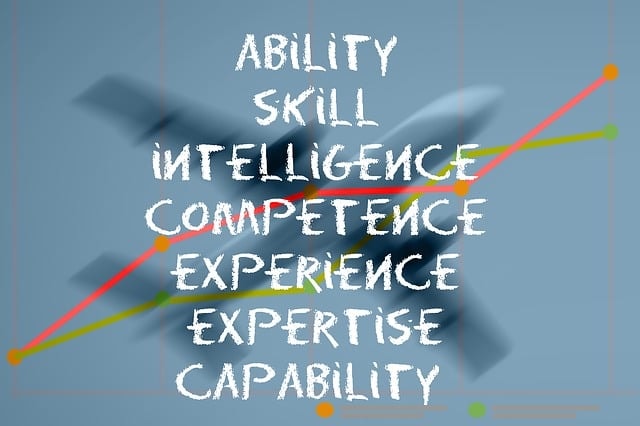In an ever-evolving professional landscape, the ability to be adaptable individuals is not just a desirable trait; it’s a necessity. As industries transform and new challenges arise, professionals who can pivot and adjust their strategies will not only survive but thrive. Being an adaptable employee means being open-minded and willing to embrace new ideas and approaches, even when they go against established norms.
Adaptability skills empower individuals to navigate change with confidence, ensuring they remain relevant and effective in their roles. Whether you’re a seasoned leader or just starting your career, honing these skills can significantly impact your professional growth. This blog post will explore what adaptability skills are, key examples, and how you can develop them to enhance your career trajectory.
What are Adaptability Skills?
Adaptability skills are the traits that enable individuals to adjust to new or changing circumstances, challenges, and environments effectively. These skills encompass the ability to change behavior, thoughts, and actions in response to new or unexpected situations. Adaptability is not merely about being flexible; it involves a proactive approach to change, characterized by a willingness to learn and grow.
At the core of adaptability skills is the ability to remain open to new ideas and perspectives. This openness fosters a culture of innovation and collaboration, essential in today’s fast-paced work environments. Professionals who possess strong adaptability and collaboration skills can navigate the complexities of their roles, making them invaluable assets to their organizations.

The Importance of Adaptability Skills in the Workplace
Adaptability skills are crucial for several reasons:
- Rapid Technological Changes: With the constant evolution of technology, professionals must adapt to new tools and platforms. Those who can quickly learn and implement new technologies will have a competitive edge.
- Globalization: As businesses expand globally, professionals must navigate diverse cultures and work styles. Adaptability skills enable individuals to communicate effectively and collaborate with colleagues from different backgrounds.
- Changing Job Roles: Job descriptions are no longer static. Professionals often take on new responsibilities or shift roles within their organizations. Adaptability skills help individuals embrace these changes and excel in their new positions.
- Crisis Management: In times of crisis, such as economic downturns or global pandemics, adaptable professionals can pivot their strategies and find innovative solutions to overcome unprecedented challenges.
- Career Advancement: Employers value adaptability in their employees. Those who demonstrate strong adaptability skills are often considered for promotions and leadership roles, as they can guide teams through change.
Key Skills for Adaptability
Communication Skills
Effective communication is a crucial skill at every stage of your career. Using a project management tool can enhance team communication and collaboration, allowing for organized discussions and efficient adaptations to changing situations. It becomes even more important when you are a new project, leading a team or collaborating with colleagues. Adaptable professionals excel in communication, as they can articulate their thoughts clearly and listen actively to others.
Active listening is equally important. It allows you to understand your colleagues’ perspectives and respond more appropriately. By developing strong communication skills, you can more effectively navigate unexpected challenges and changes in the work environment.
Strategies to Enhance Communication Skills
- Practice Active Listening: Focus on what others are saying without planning your response while they speak. This practice helps you better understand their viewpoints.
- Seek Feedback: Regularly ask colleagues and supervisors for feedback on your communication style. This can help you identify areas for improvement.
- Engage in Public Speaking: Join groups like Toastmasters to practice public speaking. This experience can boost your confidence and improve your ability to communicate effectively.
- Utilize Technology: Leverage communication tools like Slack, Microsoft Teams, or Zoom to enhance collaboration and ensure clear communication, especially in remote work settings.
- Tailor Your Message: Adapt your communication style based on your audience. For example, technical jargon may be appropriate for a team of engineers but not for a group of marketing professionals.

Problem-Solving Skills
Adaptable professionals are skilled problem-solvers who can think critically and flexibly when faced with challenges. Learning a new skill can significantly enhance these problem-solving abilities. They can navigate unforeseen problems with ease, demonstrating strong adaptability. Problem-solving and critical thinking skills are essential for overcoming unprecedented challenges in the workplace.
Techniques for Developing Problem-Solving Skills
- Define the Problem Clearly: Take the time to understand the root cause of the issue before jumping to solutions. A clear definition can guide your problem-solving process.
- Brainstorm Solutions: Gather a diverse group of colleagues to brainstorm potential solutions. Different perspectives can lead to innovative ideas.
- Evaluate Options: Assess the pros and cons of each potential solution. Consider factors such as feasibility, cost, and impact on stakeholders.
- Implement and Monitor: Once a solution is chosen, implement it and monitor its effectiveness. Be prepared to make adjustments as needed.
- Reflect on Outcomes: After resolving a problem, reflect on what worked and what didn’t. This reflection can enhance your problem-solving skills for future challenges.
Embracing Change
Adaptability is about adjusting your approach based on the situation. Embracing change is a vital part of adaptability, and it requires a growth mindset. A growth mindset believes that qualities, like intelligence, can be improved upon, whereas a fixed mindset believes qualities are predetermined and unchangeable. People with growth mindsets are adaptable because they’re likely to take on new challenges to grow and learn from them.
Cultivating a Growth Mindset
- Challenge Negative Thoughts: When faced with a setback, challenge negative thoughts by focusing on what you can learn from the experience.
- Set Learning Goals: Instead of solely focusing on performance goals, set goals emphasizing learning and personal development.
- Celebrate Effort: Recognize and celebrate your efforts, not just the outcomes. This practice reinforces the idea that growth comes from trying new things.
- Surround Yourself with Growth-Minded Individuals: Engage with colleagues and mentors with a growth mindset. Their attitudes can inspire and motivate you.
- Stay Curious: Cultivate a sense of curiosity about your work and the world around you. Ask questions and seek out new experiences to broaden your perspective.
Learning from Others
Learning from others is an essential part of developing adaptability skills. Adapting to new working environments, such as transitioning from in-person to online tutoring during the COVID-19 pandemic, is crucial for showcasing your ability to adjust. Seeking feedback from colleagues can help you identify areas for improvement and develop new adaptability skills in interview questions. This collaborative approach enhances your adaptability and fosters a supportive work environment.
Strategies for Learning from Others
- Establish a Mentorship Relationship: Find a mentor who can provide guidance and share their experiences. A mentor can offer valuable insights into navigating challenges.
- Participate in Team Projects: Collaborate with colleagues on projects to learn from their expertise and approaches. Teamwork can expose you to different problem-solving methods.
- Attend Workshops and Seminars: Participate in professional development opportunities to learn from industry experts and peers.
- Join Professional Associations: Engage with professional organizations related to your field. These associations often provide resources, networking opportunities, and learning experiences.
- Create a Feedback Culture: Encourage open feedback within your team and regularly solicit input from colleagues to foster a culture of continuous learning.

Developing Adaptability
Developing adaptability requires a combination of skills, mindset, and practice. It involves being open to new experiences, learning from failures, and being willing to adjust to changing circumstances. Adaptability skills are essential for navigating the ever-evolving professional landscape and ensuring long-term career success. In this section, we will explore the key components of developing adaptability and provide tips on how to improve your adaptability skills.
Adapting to Technological Changes
In today’s fast-paced world, adapting to technological changes is a crucial aspect of developing adaptability. With the rapid pace of technological advancements, staying up-to-date with the latest tools and trends is essential. This can involve learning new skills, such as coding or data analysis, or adapting to new project management tools. By being open to new technologies and willing to learn, you can stay ahead of the curve and remain competitive in the job market.
Emotional Intelligence and Adaptability
Emotional intelligence is a vital component of adaptability. It involves being aware of your emotions and the emotions of others and being able to manage them effectively. By developing emotional intelligence, you can better navigate unexpected challenges and build stronger relationships with your colleagues. This can involve practicing empathy, active listening, and effective communication.
Resilience as a Component of Adaptability
Resilience is a critical component of adaptability. It involves being able to bounce back from setbacks and failures, and being able to adapt to changing circumstances. By developing resilience, you can better navigate unexpected challenges and remain motivated and focused. This can involve practicing self-care, seeking feedback, and learning from failures.
Measuring Adaptability in the Workplace
Measuring adaptability in the workplace can be challenging, but it’s essential for identifying areas for improvement. Employers can assess an employee’s ability to adjust to new situations and challenges through various methods.
Methods for Assessing Adaptability
- Performance Reviews: During performance evaluations, managers can discuss specific instances where an employee demonstrated adaptability or struggled to adjust. This feedback can guide future development.
- 360-Degree Feedback: Implement a 360-degree feedback process where colleagues, supervisors, and subordinates provide input on an employee’s adaptability skills. This comprehensive approach offers valuable insights.
- Adaptability Skills Assessment Tools: Utilize assessment tools designed to measure adaptability skills. These tools can provide a structured way to evaluate an employee’s strengths and areas for improvement.
- Behavioral Interviews: Incorporate adaptability-focused questions during the hiring process. Ask candidates to provide examples of how they have adapted to change in previous roles.
- Self-Assessment: Encourage employees to conduct self-assessments of their adaptability skills. This reflection can help individuals identify their strengths and areas for growth.
Overcoming Unexpected Challenges
Overcoming unexpected challenges is a crucial part of adaptability. Developing problem-solving skills, learning from others, and embracing change can help you navigate these challenges effectively. Adaptable employees are more productive, efficient, and effective in their roles.
Strategies for Overcoming Challenges
- Stay Calm Under Pressure: When faced with unexpected challenges, take a moment to breathe and assess the situation. Staying calm can help you think more clearly and make better decisions.
- Prioritize Tasks: Identify the most critical tasks that need immediate attention. Focus on addressing these tasks first before moving on to less urgent matters.
- Leverage Your Network: Reach out to colleagues or mentors for support and advice. Collaborating with others can provide new perspectives and solutions.
- Be Open to Change: Embrace the idea that change is a natural part of the professional landscape. Being open to new approaches can help you adapt more easily.
- Document Lessons Learned: Document what you learned from the experience after overcoming a challenge. This reflection can serve as a valuable resource for future challenges.

The Path to Enhanced Professional Growth
Adaptability is a vital soft skill used for professional growth and development. By embracing change, learning from others, and developing problem-solving skills, you can become more adaptable and enhance your professional growth.
Creating a Personal Development Plan
Consider creating a personal development plan to effectively develop your adaptability skills. This plan can help you set specific goals and track your progress.
- Identify Your Goals: Determine what specific adaptability skills you want to develop. For example, you might aim to improve your communication skills or enhance your problem-solving abilities.
- Set Measurable Objectives: Establish clear, measurable objectives for each goal. For instance, you could aim to attend two workshops on communication skills within the next six months.
- Create an Action Plan: Outline the steps you will take to achieve your objectives. This plan could include attending training sessions, seeking feedback, or engaging in mentorship.
- Monitor Your Progress: Review your progress toward your goals regularly. Adjust your action plan as needed to stay on track.
- Celebrate Achievements: Acknowledge and celebrate your accomplishments along the way. Recognizing your progress can motivate you to continue developing your adaptability skills.
Leveraging Resources for Professional Growth
Consider exploring resources that can further support your journey. For instance, professional resume writing services can help you articulate your adaptability skills effectively on your resume, showcasing your ability to thrive in dynamic and changing environments.
- Online Courses: Platforms like Coursera, Udemy, and LinkedIn Learning offer courses on adaptability, communication, and problem-solving. These courses can provide valuable insights and practical skills.
- Books and Articles: Read books and articles on adaptability and personal development. Authors like Carol Dweck, who wrote “Mindset,” provide valuable insights into cultivating a growth mindset.
- Podcasts and Webinars: Listen to podcasts or attend webinars focused on professional development. These resources often feature experts sharing their experiences and strategies for success.
- Networking Events: Attend industry conferences and networking events to connect with professionals who can share their insights and experiences related to adaptability.
- Coaching and Mentorship: Consider working with a coach or mentor who can provide personalized guidance and support as you develop your adaptability skills.
Feedback and Adaptability
Feedback is an essential component of adaptability. It involves being open to feedback from others and being willing to adjust your approach based on that feedback. You can improve your adaptability skills and remain competitive in the job market by seeking feedback and being open to constructive criticism. This can involve asking for feedback from colleagues or managers and being willing to make changes based on that feedback.
The Role of Leadership in Fostering Adaptability
Leadership plays a crucial role in fostering a culture of adaptability within organizations. Leaders who model adaptability and encourage their teams to embrace change can create an environment where innovation thrives.
Strategies for Leaders to Promote Adaptability
- Lead by Example: Demonstrate adaptability in your work. Share your experiences of navigating change and the lessons you’ve learned.
- Encourage Open Communication: Foster an environment where team members feel comfortable sharing their ideas and concerns. Open communication can lead to innovative solutions and a more adaptable team.
- Provide Resources for Development: Offer training and development opportunities focused on adaptability skills. This investment in your team’s growth can enhance overall performance.
- Recognize and Reward Adaptability: Acknowledge team members who demonstrate strong adaptability skills. Recognition can motivate others to develop these skills as well.
- Create a Safe Space for Experimentation: Encourage your team to take calculated risks and experiment with new ideas. A safe space for experimentation can lead to innovative solutions and increased adaptability.

Building a Culture of Adaptability
Creating a culture of adaptability within your organization requires a collective effort. By fostering an environment that values adaptability, organizations can enhance their resilience and ability to navigate change.
Steps to Build a Culture of Adaptability
- Define Adaptability as a Core Value: Clearly communicate that adaptability is a core value of your organization. This message should be reflected in your mission statement and organizational goals.
- Encourage Continuous Learning: Promote a culture of continuous learning by providing opportunities for professional development. Encourage employees to pursue new skills and knowledge.
- Facilitate Collaboration: Create opportunities for cross-functional collaboration. Diverse teams can bring different perspectives and approaches to problem-solving.
- Solicit Employee Feedback: Regularly seek feedback from employees on how to improve adaptability within the organization. This input can guide initiatives and foster a sense of ownership.
- Celebrate Successes: Recognize and celebrate instances where adaptability led to positive outcomes. Sharing success stories can inspire others to embrace change.
The Future of Work and Adaptability
As the future of work continues to evolve, adaptability will remain a critical skill for professionals across all industries. The rise of remote work, automation, and artificial intelligence will require individuals to continuously be feedback adaptable people respond to new technologies and work environments.
Preparing for the Future
- Stay Informed: Keep up with industry trends and emerging technologies. Staying informed can help you anticipate changes and prepare for new challenges.
- Embrace Lifelong Learning: Commit to lifelong learning by continuously seeking opportunities for professional development. This mindset will help you remain adaptable in a rapidly changing world.
- Develop Digital Literacy: As technology advances, developing digital literacy will be essential. Familiarize yourself with new tools and platforms to enhance your adaptability.
- Cultivate Emotional Intelligence: Emotional intelligence is crucial for navigating change and building strong relationships. Developing this skill can enhance your adaptability in the workplace.
- Network with Diverse Professionals: Engage with professionals from various industries and backgrounds. Diverse perspectives can provide valuable insights and enhance your adaptability.

Take Action and Explore Further
The journey to becoming more adaptable is ongoing, and the benefits are immense. By actively working on your adaptability skills, you can enhance your professional growth and open doors to new opportunities. Embrace change, learn from your experiences, and don’t hesitate to seek support when needed. For more insights on how to present your adaptability skills effectively, consider checking out professional resume writing services that the vital adaptability skill that can help you stand out in your career journey.
Embrace Your Adaptability Journey
Adaptability is a vital skill that can significantly influence your professional growth. In today’s fast-paced work environment, the ability to adjust to new challenges and evolving situations will set you apart from the competition. By developing and showcasing your adaptability skills, you enhance your resilience and position yourself as a valuable asset to any organization.
Embracing change is crucial for your career advancement, so take proactive steps to cultivate these skills. For more insights on how to navigate your career effectively, explore our comprehensive career advice resources. Start embracing change today, and watch your career thrive!








